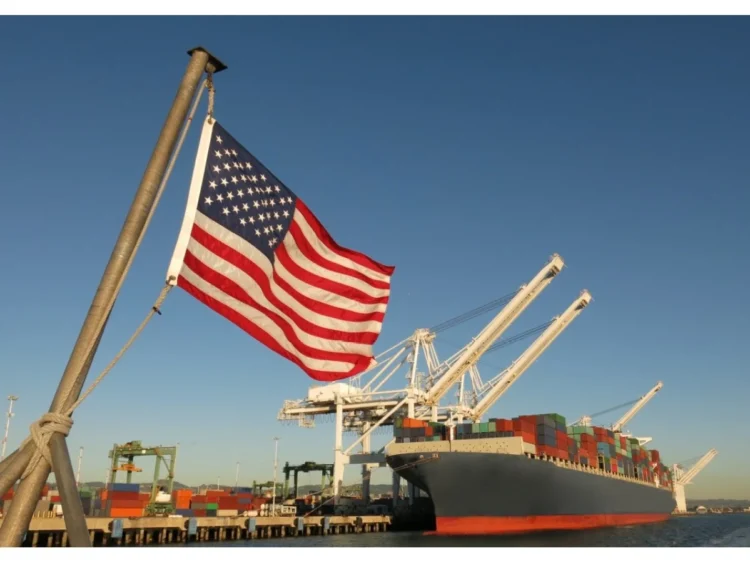Publisher: Maaal International Media Company
License: 465734
Euronews: US tariffs will help calm inflation in the eurozone
Euronews expects US President Donald Trump’s tariffs to calm inflation in the eurozone rather than fuel it, based on several factors such as lower energy prices, a strong euro, and an oversupply of Chinese goods.
It stated in a report that when President Trump announced the imposition of new, comprehensive tariffs on April 2, the world braced for a new surge in inflation. However, three weeks later, a growing number of economists and policymakers believe the opposite is true.
It added that these tariffs will ultimately lead to further lower interest rates in Europe, as European Central Bank officials have already begun to change their tone regarding them.
اقرأ المزيد
Earlier this month, the bank cut its deposit facility rate (the interest rate the central bank pays commercial banks when they deposit excess funds with it overnight) by 25 basis points to 2.25%, and ECB President Christine Lagarde hinted at discussing a 50 basis point cut. Euronews noted that the announcement of US tariffs has shifted the European Central Bank’s stance, with policymakers now prioritizing the risks of slowing economic growth.
The channel quoted Lagarde’s statements, in a recent interview with the Washington Post, that she sees the impact of tariffs in the Purchasing Managers’ Index (PMI), purchasing intentions, and hiring intentions, adding that tariffs are likely to be more effective in reducing inflation than increasing it.
Lagarde also indicated that the European Central Bank is likely to lower its growth forecasts at its next meeting in June.
The ECB president considered the slowdown in energy markets to reflect expectations of a slowdown in global growth, especially if US tariffs restrict trade flows and reduce business confidence.
At the same time, she pointed to the positive effects of the improvement in the euro-dollar exchange rate on imported inflation, as goods imported from the US will become cheaper in Europe, leading to lower inflation.
The news channel touched on another force contributing to the slowdown in inflation, particularly in Europe: the expected rerouting of global goods. Giovanni Pierdomenico, an economist at Goldman Sachs, was quoted as saying that US tariffs will create a global supply surplus of approximately $300 billion (€280 billion). With US demand declining, some of this surplus, particularly from China, is likely to redirect to Europe.
He added that past events indicate that around 15% of the supply surplus will end up in the eurozone, equivalent to a 1.5% to 2% increase in commodity supply. He stated that we estimate this will translate into a decline of around 1.5% in commodity prices, equivalent to a 0.5% decline in the core CPI.
The news channel reported that with inflationary pressures easing, markets are increasingly betting that the European Central Bank will make further interest rate cuts before the end of the year. Bank of America now expects the deposit rate to fall to 1.25% by December, citing “lower growth, lower inflation, and lower policy rates.” According to the channel, the bank recently revised its eurozone GDP forecasts downward to 0.8% for 2025 and 1.0% for 2026, highlighting the uncertainty associated with tariffs, a stronger euro, and weak global demand.
It noted that Germany’s economy, due to its export-dependent economy and the impact of tariffs on the auto sector, is expected to contract by 0.1% in 2025. The French and Italian economies are expected to grow by only 0.4% and 0.7%, respectively.
It noted that downward wage pressures are contributing to the trend toward slowing inflation. It also quoted Bill Deveny, head of economic research at ABN AMRO, as saying that the Indeed Wage Index (an indicator used to measure wage growth) fell to 2.7% in the first quarter, the lowest since the pandemic.
He added: “The slowdown in inflation means the European Central Bank is likely to continue cutting interest rates to 1.5% by September.” Euronews concluded its report by stating that while the full effects of President Trump’s tariffs have yet to be felt, the early response from markets and policymakers suggests that inflation fears may be overblown.








